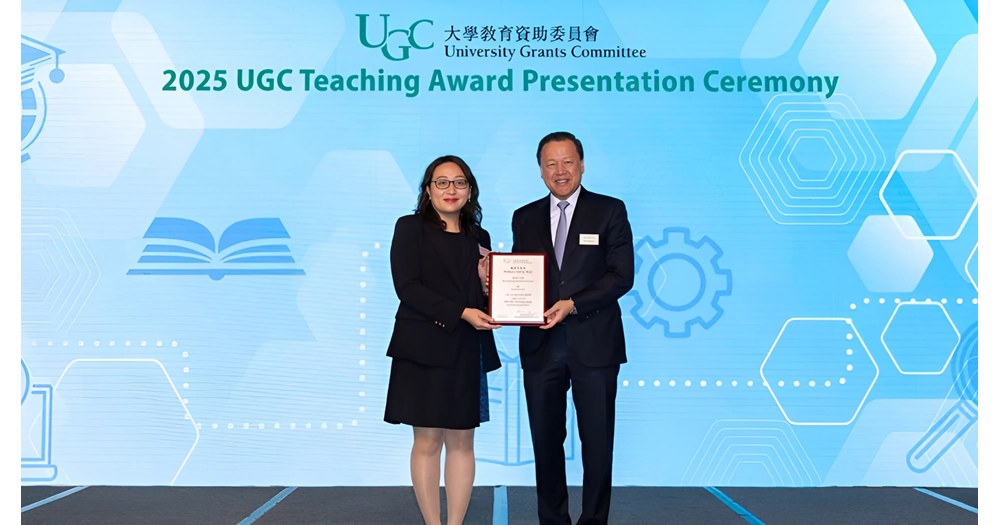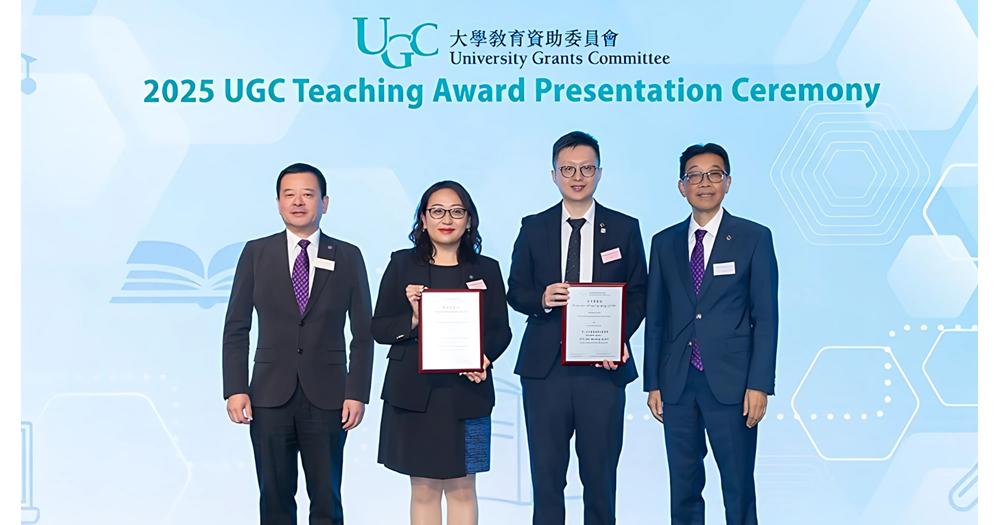Prof. Shirley NGAI, Associate Head and Associate Professor of the Department of Rehabilitation Sciences at PolyU, received the 2025 University Grants Committee (UGC) Teaching Award (the Award) in the General Faculty Members category for her visionary leadership in rehabilitation education. An awardee for the Early Career Faculty Members category in 2016, Prof. Ngai is the first individual to receive this prestigious accolade twice.
Throughout her 13-year teaching journey, Prof. Shirley Ngai has espoused a student-centred pedagogy and had a transformative impact on physiotherapy education with her extraordinary leadership. With the aim of revolutionising competency-based clinical training, she has introduced medical simulation into physiotherapy education in Hong Kong. This approach utilises simulated patients to enhance students’ clinical skills and confidence, equipping them to face real-world clinical environments. Her numerous innovative teaching initiatives, including mobile learning apps and self-directed e-books, as well as the adoption of advanced technologies such as Virtual Reality and Augmented Reality, also strengthen students’ self-directed learning and professional competency. The online learning modules and a globally recognised online course she has developed have been adopted by more than 3,800 learners from over 130 regions worldwide.
Prof. Ngai has actively promoted academic and curriculum reform to elevate international standards in rehabilitation education. She spearheaded the creation of Blended Clinical Education, a comprehensive framework incorporating virtual patient cases, grading rubrics and quality assurance systems. This initiative breaks through the traditional practice of recognising only hands-on clinical training and has drawn attention from the global academic community.
Expressing her great honour at receiving the Award for a second time, Prof. Ngai said, “My dynamic teaching journey has shaped my teaching philosophy: exceeding traditional boundaries, tackling challenges and relentlessly innovating to elevate outcomes for every student. I have noticed that many students feel stressed when applying university knowledge during clinical placement; I therefore took the initiative to reform the clinical curriculum to hone skills that are essential for clinical practice. The Award is a tremendous encouragement. I will continue championing my various novel solutions to educators worldwide, striving to make even greater contributions to the academic community.”






